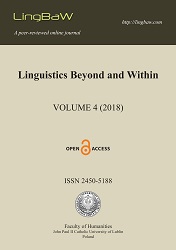Cognitive mechanisms and emergent grammatical features in Internet memes
Cognitive mechanisms and emergent grammatical features in Internet memes
Author(s): Elke DiedrichsenSubject(s): Syntax, Psycholinguistics, Cognitive linguistics, Theory of Communication, Social Informatics
Published by: Wydawnictwo KUL
Keywords: Internet memes; emergent grammar; grammaticalisation; metaphor; metonymy;
Summary/Abstract: Internet memes of the type composed of an image macro and text, have a strong form-meaning correlation that is shared among users of social media. Their frequency of usage and the immediacy of their broad reach around the world make them an interesting field of investigation for linguistic studies. I will argue in this article that Internet memes resemble linguistic signs. Users develop a literacy, i.e. a command of their usage through convention and shared usage history. Popular Internet memes can be found in a multiplicity of variations, where details of the shown picture are changed, while the general mood or topic of the meme, mostly expressed in the caption, remains broadly the same. This article will discuss cases where the development of meme variations works along the lines of known cognitive mechanisms like metaphor and metonymy, and their prerequisites, like abstraction. Some meme variations can be represented as grammaticalisation paths that lead to the emergence of grammatical features like morphemes.
Journal: Linguistics Beyond and Within (LingBaW)
- Issue Year: 4/2018
- Issue No: 4
- Page Range: 22-37
- Page Count: 16
- Language: English

